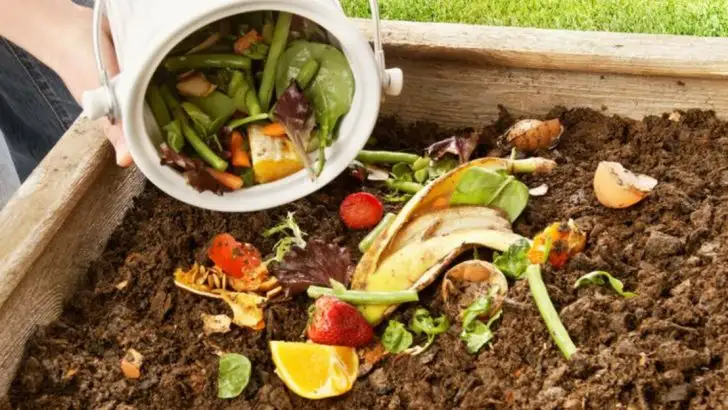Composting sounds simple: toss in your food scraps, wait a while, and voilà — rich, earthy goodness for your garden. But if your compost pile smells bad, breaks down too slowly, or turns into a soggy mess, you’re not alone. Many gardeners unknowingly make small composting mistakes that lead to big problems.
Whether you’re new to composting or have been at it for years, it’s easy to overlook key details like balance, aeration, and what not to add. The good news? A few smart tweaks can dramatically improve the health, speed, and smell of your compost — and make your garden thrive in the process.
In this article, we’ll break down 10 common composting mistakes and how to fix them. With these tips, you’ll be turning scraps into black gold faster, cleaner, and more effectively than ever before.
Not Balancing Green and Brown Materials
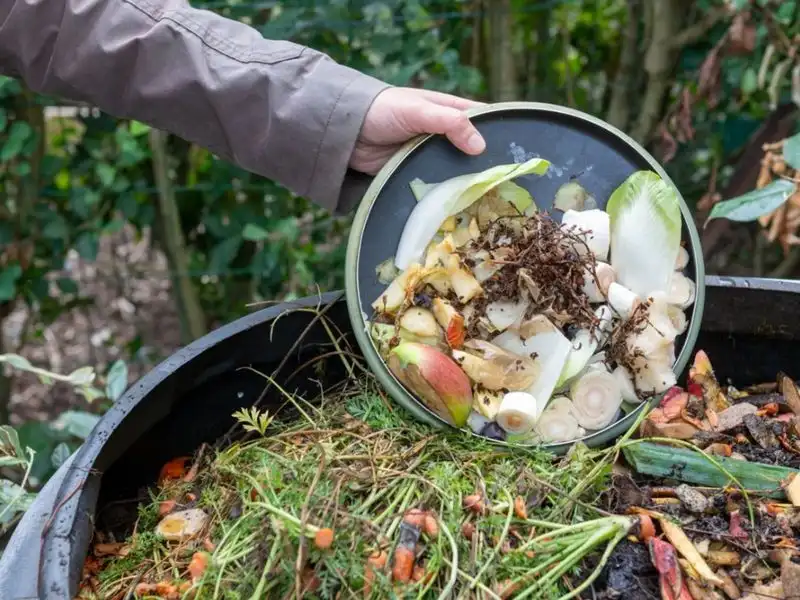
A common mistake in composting is not maintaining a proper balance between green and brown materials. Green materials like fruit scraps and grass clippings are rich in nitrogen, while brown materials such as dried leaves and straw provide carbon. Without balance, compost can become too wet or smelly. Aim for equal parts by volume, and adjust as needed based on moisture and odor. Too much green can lead to a slimy pile, while excess brown slows decomposition. Experiment and observe to achieve the ideal mix. This balance is crucial for efficient composting.
Ignoring Moisture Levels
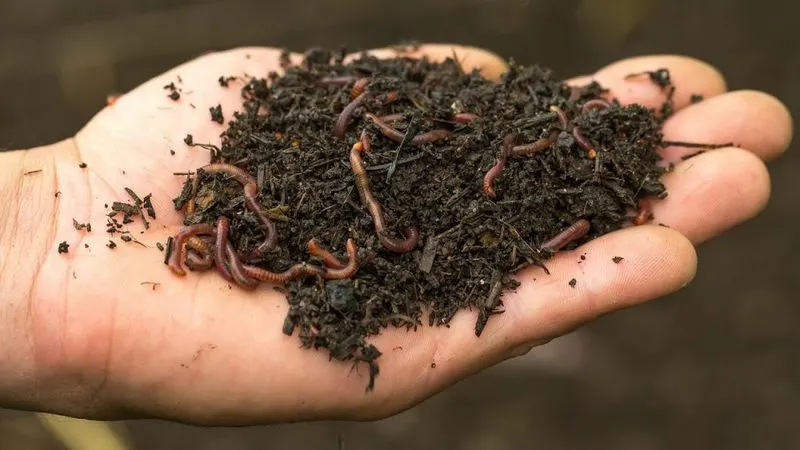
Ignoring moisture levels can severely impact the effectiveness of composting. Compost should feel like a damp sponge; too dry, and the composting process slows, too wet, and it could become anaerobic. Regularly check moisture, especially during dry spells or heavy rains. Add water if it’s dry, or turn the pile and add dry materials if it’s too wet. Proper moisture ensures microorganisms thrive and break down materials efficiently. Maintaining the right moisture level accelerates decomposition and prevents bad odors from developing. It’s a simple yet vital aspect of composting.
Adding Meat and Dairy
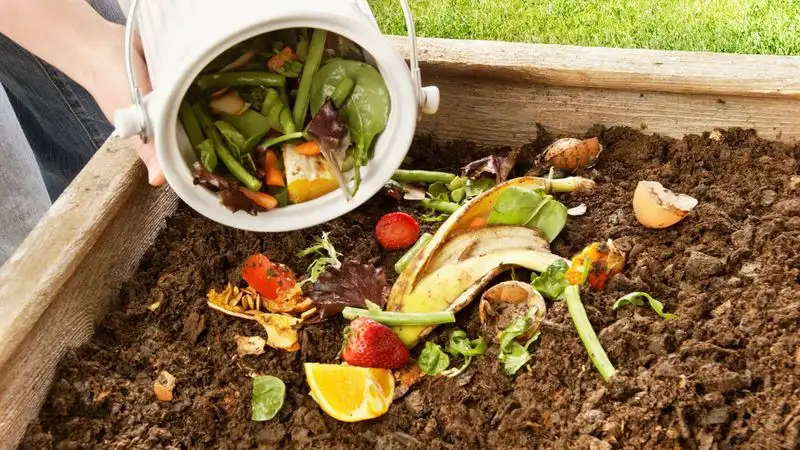
Adding meat and dairy to compost is a rookie mistake that can attract pests and create foul odors. These items don’t break down as quickly as plant-based materials and can disrupt the balance of your compost pile. Instead, stick to plant-based kitchen scraps, coffee grounds, and eggshells. Meat and dairy are best kept out of the compost bin to maintain a healthy, pest-free environment. Avoiding these items not only keeps your compost smelling fresh but also ensures it remains a fertile, nutrient-rich medium for your garden.
Forgetting to Turn the Pile
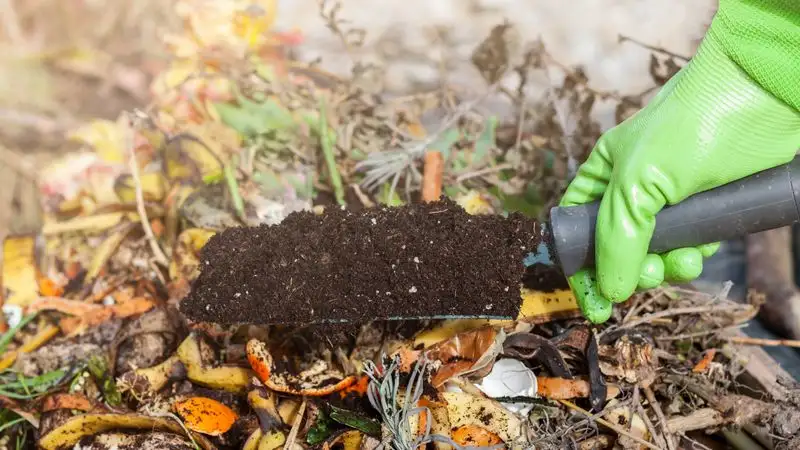
Forgetting to turn the compost pile is like forgetting to stir the soup; it won’t cook evenly. Aerating the pile by turning it ensures that oxygen reaches all areas, promoting faster decomposition and preventing foul odors. Ideally, turn your pile every few weeks. This simple act can significantly speed up the composting process. A well-aerated pile smells earthy and decomposes efficiently, providing rich, dark compost for your garden. Consistent turning of the compost pile is an easy way to enhance microbial activity and produce high-quality compost.
Using Too Many Large Pieces
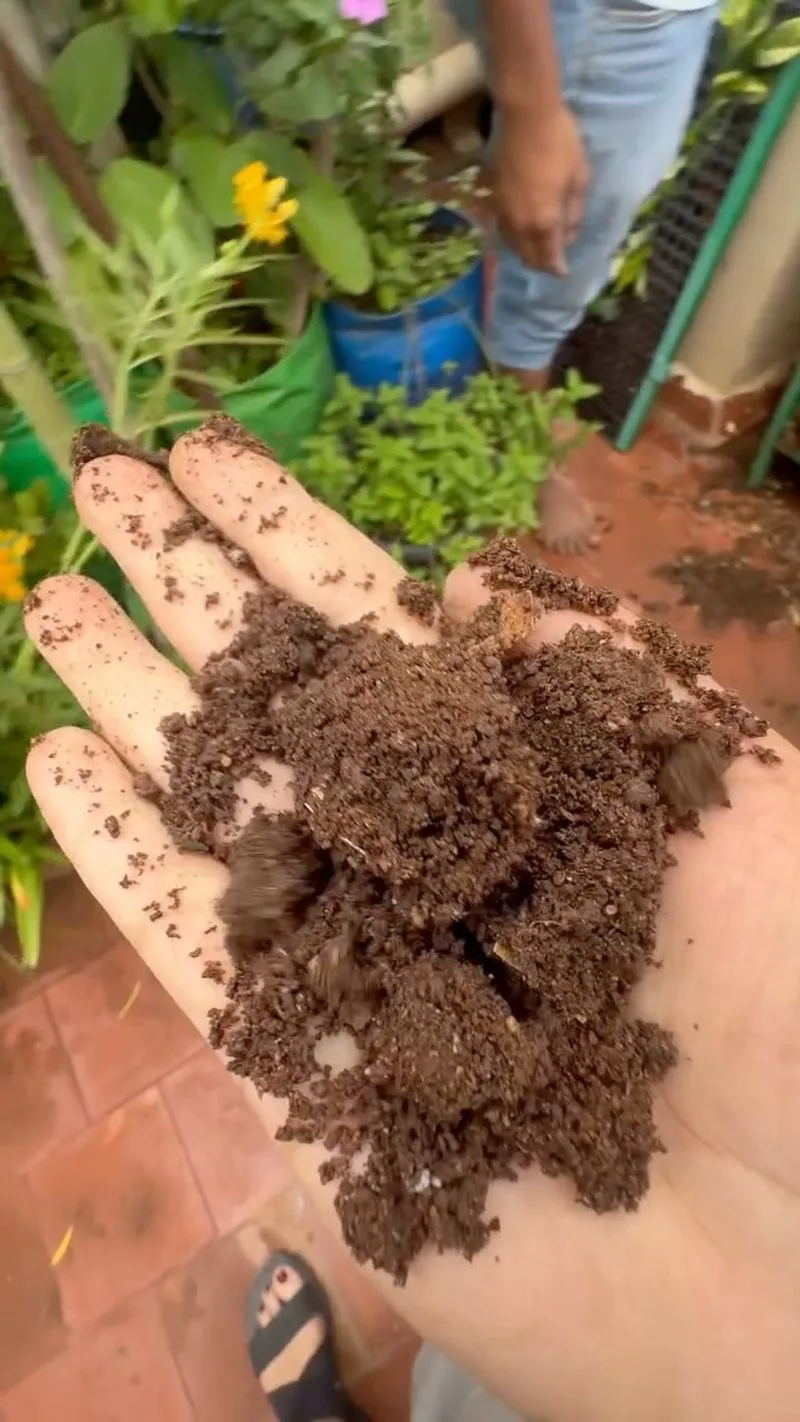
Using large pieces in composting can slow down the decomposition process significantly. Large branches and thick stems take much longer to break down compared to smaller pieces. To ensure a faster composting process, break down materials into smaller parts before adding them to the pile. Shredding leaves and cutting branches speeds up decomposition, allowing the compost to mature faster. This approach not only accelerates the process but also makes turning the pile easier. Smaller pieces make for a more efficient and manageable compost pile, ready to enrich the garden.
Overlooking Temperature
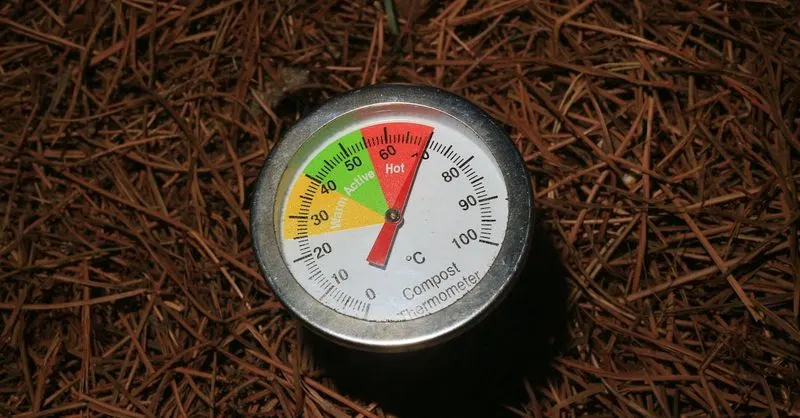
Temperature is a crucial aspect of composting that’s often overlooked. A compost pile that’s too cool won’t decompose efficiently, while extreme heat can kill beneficial microorganisms. Aim for a temperature range between 135°F and 160°F. Regularly check the temperature with a compost thermometer. Adjust aeration and moisture to maintain the optimal heat level. Monitoring temperature not only accelerates the composting process but also helps in eliminating pathogens and weed seeds. A well-maintained temperature ensures a healthy, efficient composting process, turning waste into valuable garden soil.
Not Securing the Compost Area
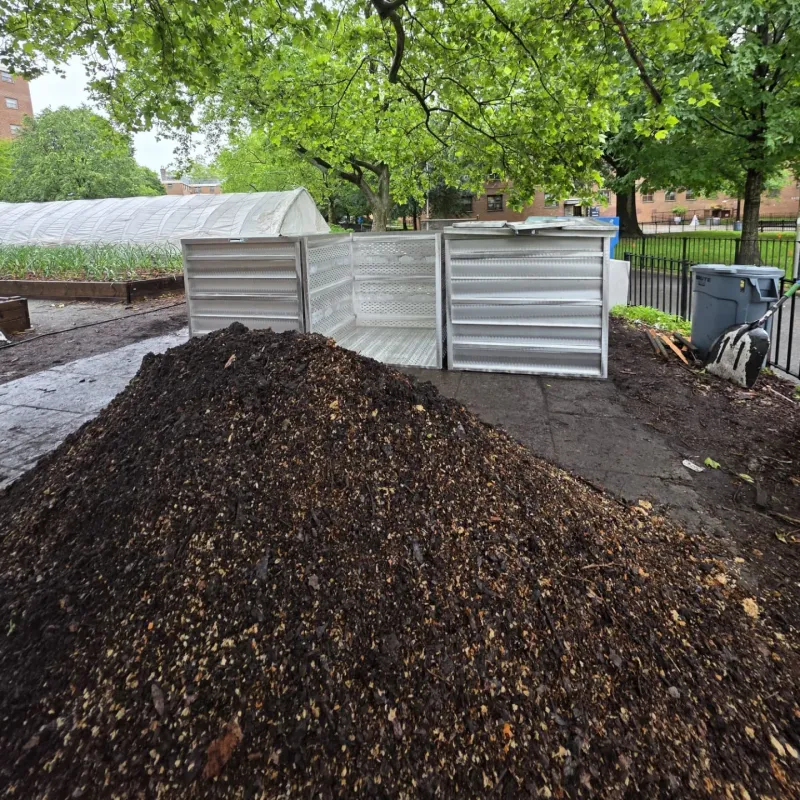
Neglecting to secure the compost area can lead to unwanted animal visitors. Raccoons, rats, and other critters are often attracted to compost piles, especially when food scraps are present. Use a closed bin or cover your pile with a tarp to deter these pests. Properly securing your compost area also helps retain moisture and heat. By keeping animals out and conditions stable, you ensure the composting process remains efficient and undisturbed. Protecting your compost pile is essential for maintaining a clean and effective composting environment.
Composting Weeds with Seeds
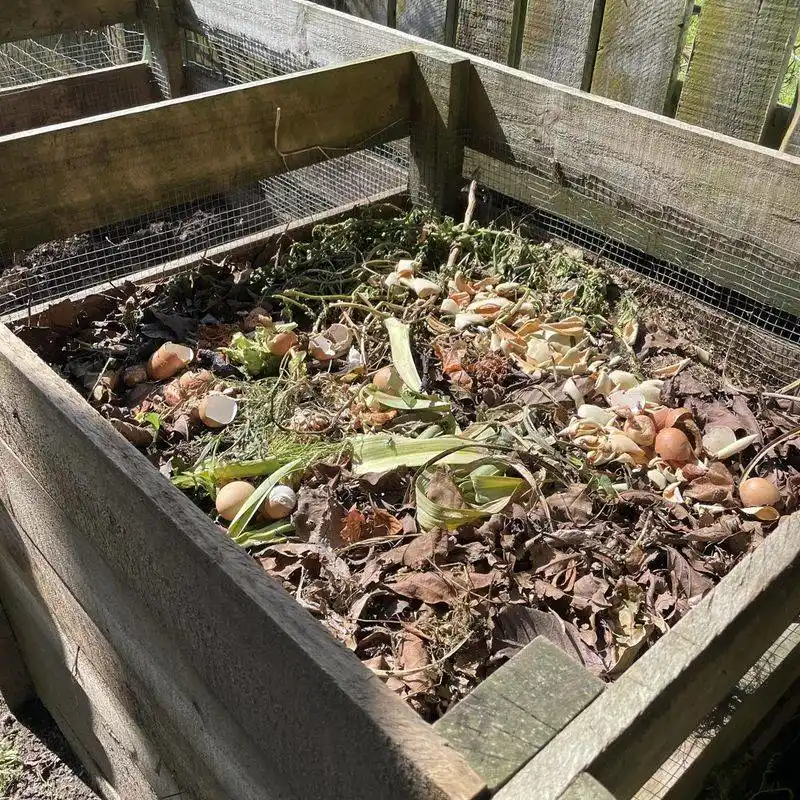
Composting weeds with seeds can inadvertently lead to spreading them throughout your garden. While weeds add organic matter, their seeds can survive the composting process if the pile doesn’t get hot enough. Either remove the seeds before composting or ensure your pile reaches temperatures over 140°F. This will kill most seeds, preventing them from sprouting when the compost is used. Be vigilant about what goes into your pile to avoid inadvertently planting a new generation of weeds. Proper management of weed materials is key to successful composting.
Neglecting to Layer Materials
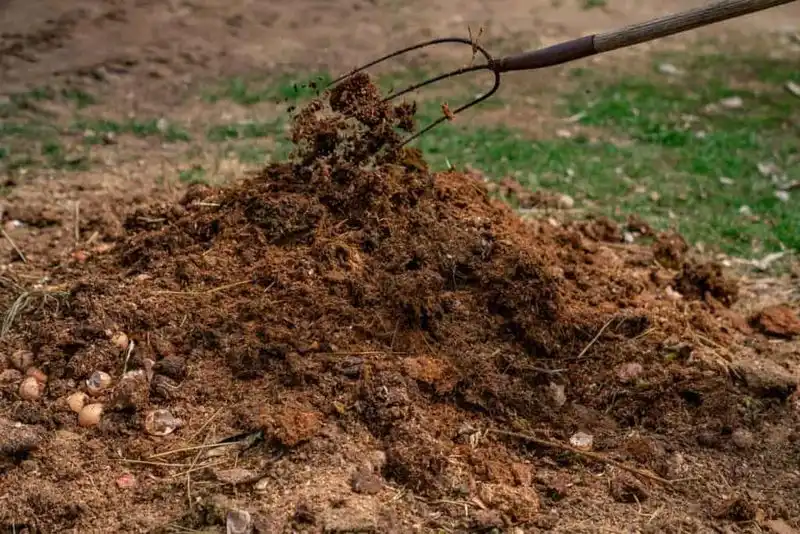
Layering materials in a compost pile is like building a lasagna—structure matters. Randomly dumping materials can lead to uneven decomposition and smells. Alternate between green and brown layers to encourage efficient breakdown. Start with coarse materials at the bottom for aeration, followed by alternating layers of green and brown. This approach not only facilitates airflow but also ensures even moisture distribution. By structuring your compost properly, you create an ideal environment for microorganisms to thrive, resulting in rich, crumbly compost for your garden.
Using Harsh Chemicals
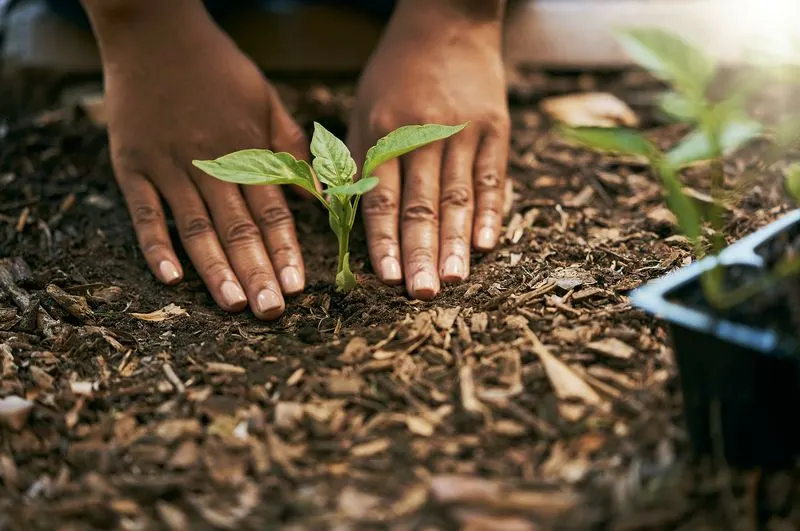
Incorporating harsh chemicals into your compost can be detrimental. Pesticides, herbicides, and synthetic fertilizers can poison your pile, killing beneficial bacteria and microorganisms. These chemicals can also remain in the finished compost, posing risks to plants and soil health. Stick to organic materials and avoid treated yard waste. By keeping your compost chemical-free, you ensure it remains a natural, beneficial resource for your garden. Organic compost supports a robust ecosystem, promoting healthy plant growth and soil vitality without the risks associated with chemicals.

